Common questions about wrongful convictions, unjust sentences, and our work in Louisiana.
From case applications to compensation, from LLEAD to legislative advocacy—find answers to the questions we hear most. Can’t find what you’re looking for? Contact us or explore our website to learn more about our work freeing the innocent and unjustly punished.
We are Louisiana’s only non-profit law firm dedicated to freeing people who have been wrongfully convicted and those serving unjust sentences. Additionally, we provide ongoing support to clients after their release and work to reform the laws that make wrongful convictions possible.
Innocence cases involve people who are factually innocent—they did not commit the crime. Unjust punishment cases involve people who may not be innocent but are serving excessive sentences that far outweigh their actual culpability or are disproportionate to the circumstances of their crime.
We receive hundreds of requests each year but can only take a limited number of cases due to our resources. We prioritize cases involving life or near-life sentences where clients meet our specific criteria and have exhausted their direct appeals, because they are entitled to lawyers until their direct appeals are complete.
Unless a person is unable to advocate for themselves, we only accept applications directly from incarcerated people. Most prisons in Louisiana have, through Inmate Counsel Substitutes, our innocence or unjust punishment applications. Incarcerated people can also write to us directly and request an application.
If you are advising your loved one on whether they might be eligible for our services, please check the qualification criteria on our Get Help page.
Our investigations typically take several years to complete. We focus our limited resources on cases where clients face the longest sentences and have the most time to serve.
No. All of our legal representation is provided free of charge to clients who cannot afford an attorney.
No, we only handle Louisiana cases for people who were convicted in a Louisiana state court or in a federal district court in Louisiana.
Information about other Innocence Organizations can be found here: https://innocencenetwork.org/directory.
It can take several years to free or exonerate a wrongfully convicted or unjustly punished person. Each case is unique and depends on factors like the availability of evidence, witness cooperation, and court schedules.
We provide comprehensive re-entry support through our Client Services Division, including housing assistance, help obtaining identification, medical care, employment support, and ongoing case management for as long as needed.
Yes, Louisiana has a compensation statute that provides up to $40,000 per year of wrongful imprisonment (capped at 10 years) plus potential lost earnings. Compensation proceedings are separate court proceedings in which a person has to prove their innocence even after they have been exonerated. We provide or coordinate free legal representation to help eligible clients navigate this complex process.
Louisiana has the second-highest rate of known wrongful convictions of any state in the nation. New Orleans leads the nation in rates of wrongful convictions by city, and Jefferson Parish is also in the top ten nationally.
The leading causes include prosecutorial misconduct (especially hiding evidence), eyewitness misidentification, inadequate legal defense, police misconduct, and false confessions. In Louisiana, prosecutor misconduct occurs in wrongful convictions at twice the national average.
Historical factors include underfunded public defense, non-unanimous jury verdicts (until recently), destruction of evidence (including from Hurricane Katrina), and prosecutorial misconduct with little accountability.
The Louisiana Law Enforcement Accountability Database (LLEAD) is a comprehensive, statewide database that tracks police misconduct across Louisiana’s 600+ law enforcement agencies. It’s the first public database of its kind in Louisiana.
Visit LLEAD.co to search the database for information about individual officers’ misconduct and employment history. Contact our staff at llead@justicelouisiana.org for assistance with additional data like trends of policing in particular departments.
You can donate, volunteer, request a speaker for your event, or follow our advocacy efforts. Visit our Engage page for more information about ways to get involved.
Yes, Innocence & Justice Louisiana is a 501(c)(3) nonprofit organization, and donations are tax-deductible to the fullest extent allowed by law.
Yes, we offer summer internships and semester-long externships for undergraduate, graduate, and law students. All positions are unpaid but can be done for academic credit. Visit our Work With Us page for more information.
Yes, please contact our development team at development@justicelouisiana.org for more information.
We were formerly known as Innocence Project New Orleans (IPNO). We rebranded to Innocence & Justice Louisiana to better reflect our statewide work and expanded mission.
Since 2001, we have freed 75 people who were innocent or unjustly punished. Collectively, our clients spent over 1,171 years in prison for crimes they did not commit.
No, we are an independent organization. Innocence Project, which is based in New York, and the 71 other innocence organizations worldwide are all independent from one another. We are a founding member of the Innocence Network, through which innocence organizations share information and come together for training.
Work with Us: Volunteer and Career Opportunities
We rely on the dedication of interns, volunteers, and staff to make our work possible. The time, talent, and passion of those who join us help drive investigations, support clients, and ultimately free more people. Whether you’re a student, legal professional, or community member, there’s a role for you here.
